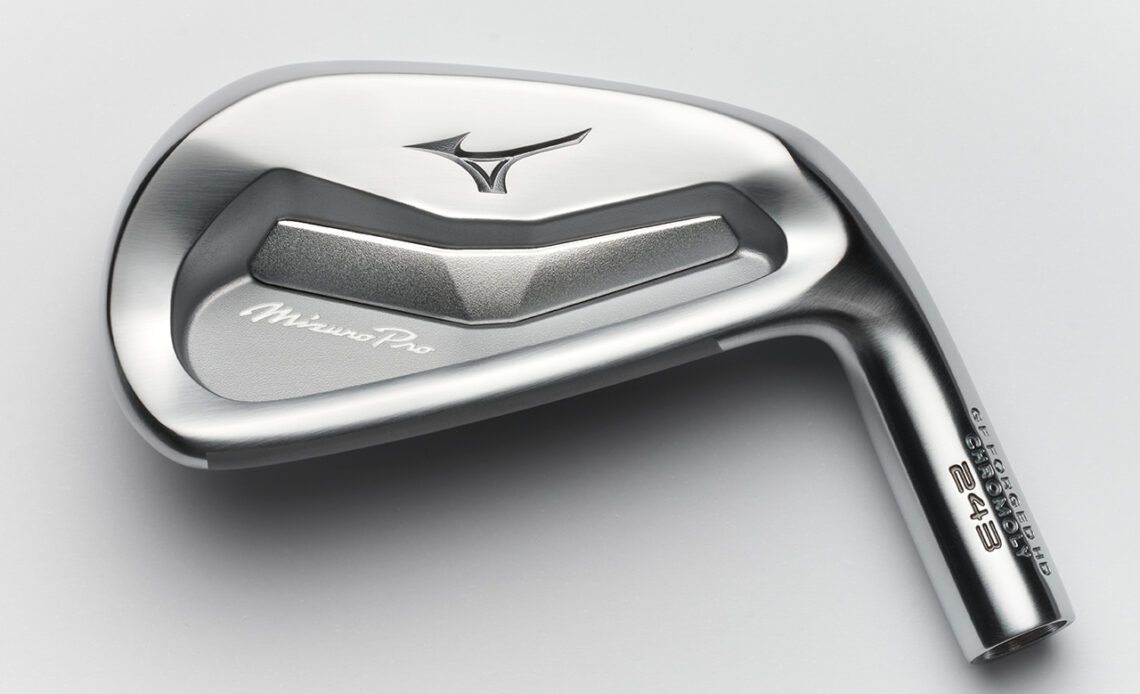Gear: Mizuno Pro 243 irons
Price: $200 each with Nippon N.S. Pro Modus3 steel shafts and Golf Pride MCC grips
Specs: Forged 4120 Chromoly (4-7 irons) and forged 1025E mild carbon steel (8-iron through gap wedge) with copper underlayer. Available in 4-iron through gap wedge (right-hand only).
Available: January 25, 2024
Who It’s For: Low-handicap golfers and solid ballstrikers who want the control and feel of a better-player’s irons combined with a touch of forgiveness.
The Skinny: The Mizuno Pro 243 has the compact size and classic look accomplished players like, but with a cavity-back design and invisible slot in the sole, it has more forgiveness than the muscleback blades it resembles.
The Deep Dive: The new Mizuno Pro 241 is joining a long list of Mizuno muscleback blades that nearly every golfer admires. However, the number of golfers who can use them and consider switching to them is minimal. While they deliver loads of feel, there’s almost no forgiveness, and they lack any sweet spot-enlarging technology.
Enter the Mizuno Pro 243, a better-player’s cavity-back iron that has the looks accomplished ballstrikers prefer but that has several technologies to help make them more playable.
Mizuno Pro 243 irons. (Mizuno)
Each iron in the Mizuno Pro 243 set is smaller than the corresponding iron in the Mizuno Pro 223, which the new clubs replace. The topline is thinner, the blade length is shorter and the address position’s overall look is more compact.
Like the Mizuno Pro 223, the 4-iron through 7-iron in the Mizuno Pro 243 have been designed with a micro slot in the sole that allows the lower portion of the face to flex more efficiently on low-struck shots. You can’t see it because Mizuno covered it with chrome plating to keep water and debris from getting inside the heads. Now, however, the slot in the 4- and 5-irons is wider and deeper, which helps to create a higher launch angle and allows the clubs to generate more spin. The slots in the 6- and 7-irons are thinner and don’t extend as far into the toe and heel, to help smooth the transition into the 8-iron, 9-iron and wedges which have not been made with the slot.
The 4-iron through 7-iron are also made using a different material, 4120 Chromoly, than the 8-iron through gap wedge, which are forged using 1025E carbon steel. Chromoly is a much harder material, which allowed Mizuno designers to make the faces thinner for increased ball speed in the long irons. Opting for carbon steel…
..
Click Here to Read the Full Original Article at Golfweek…
